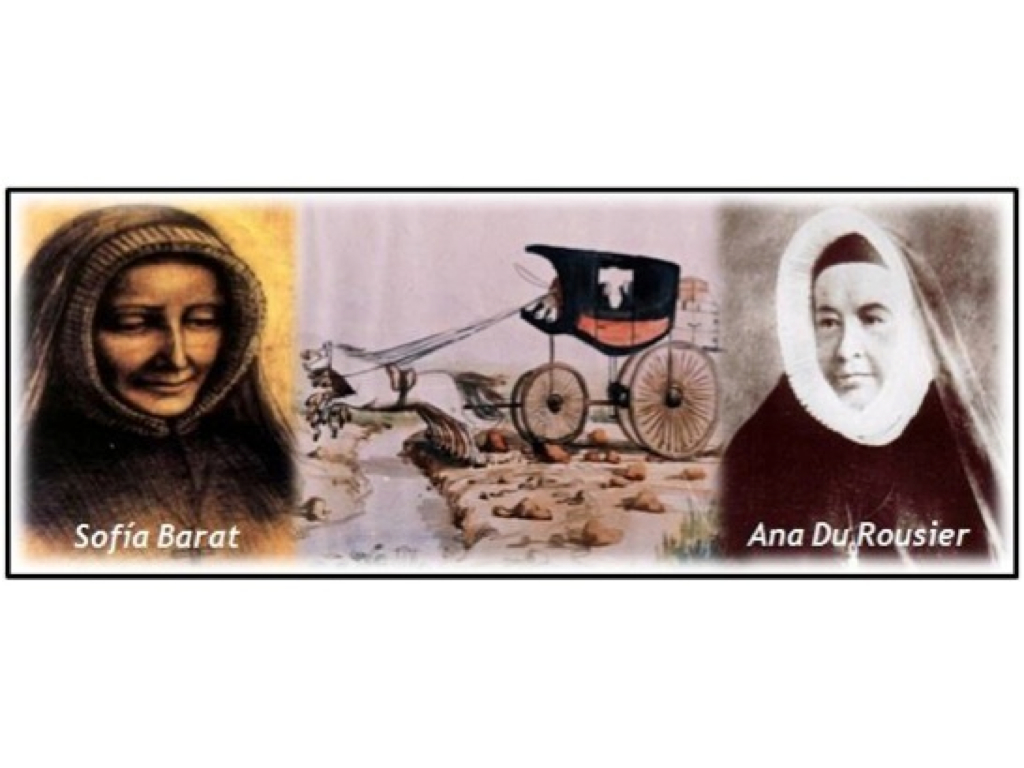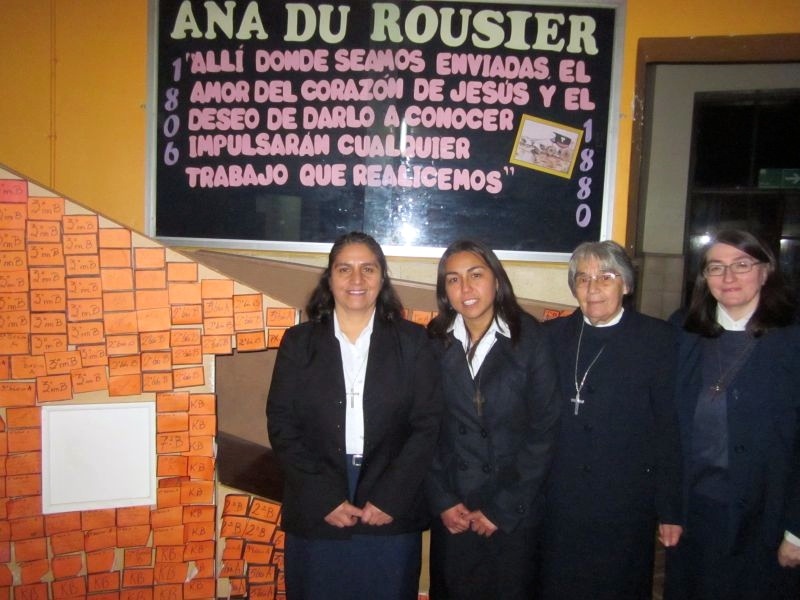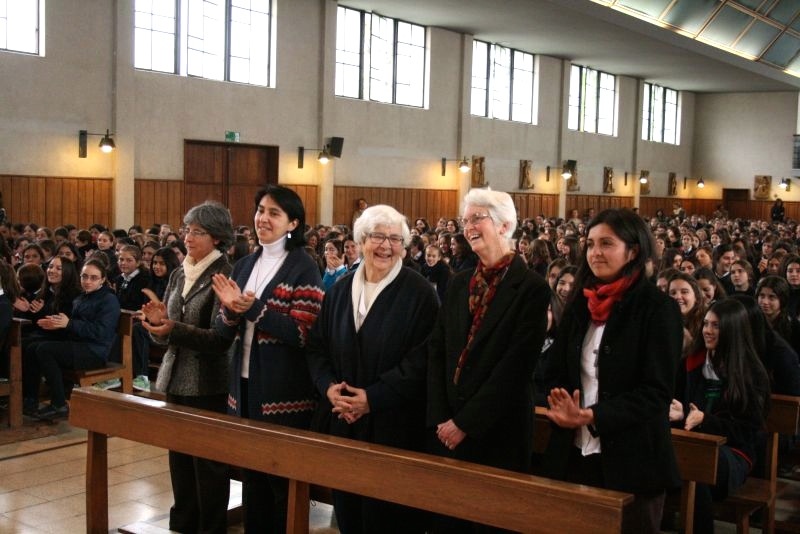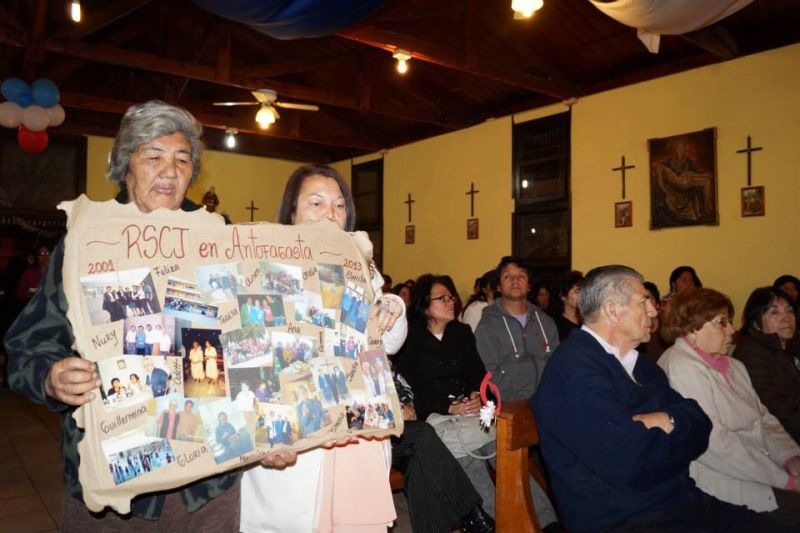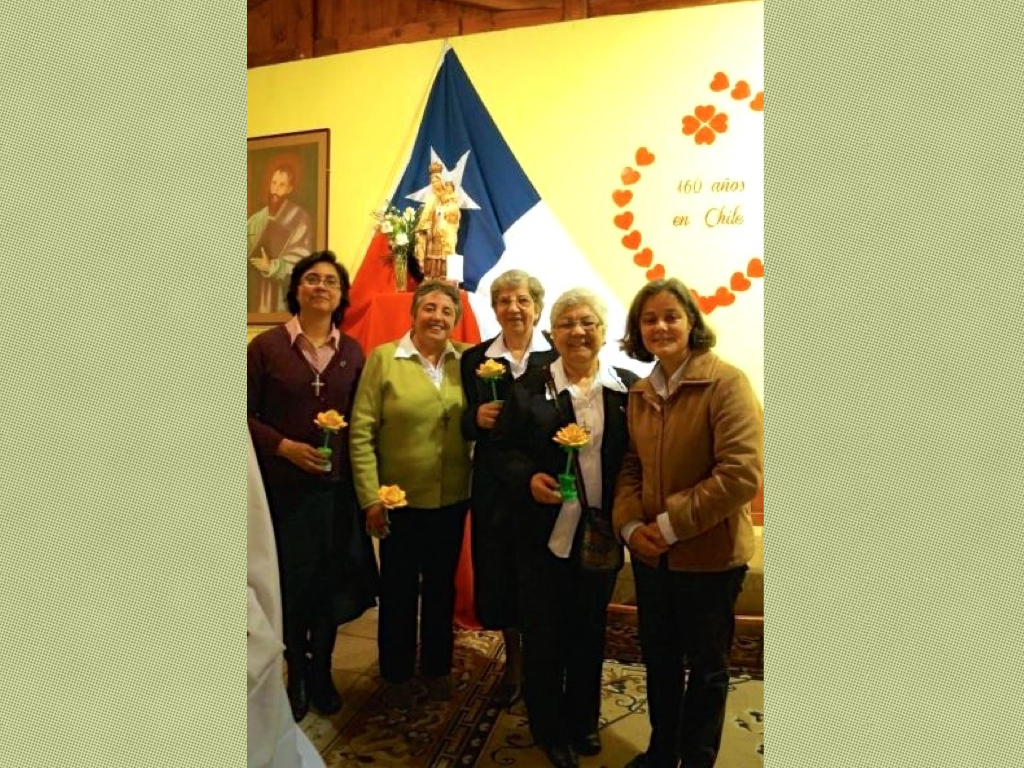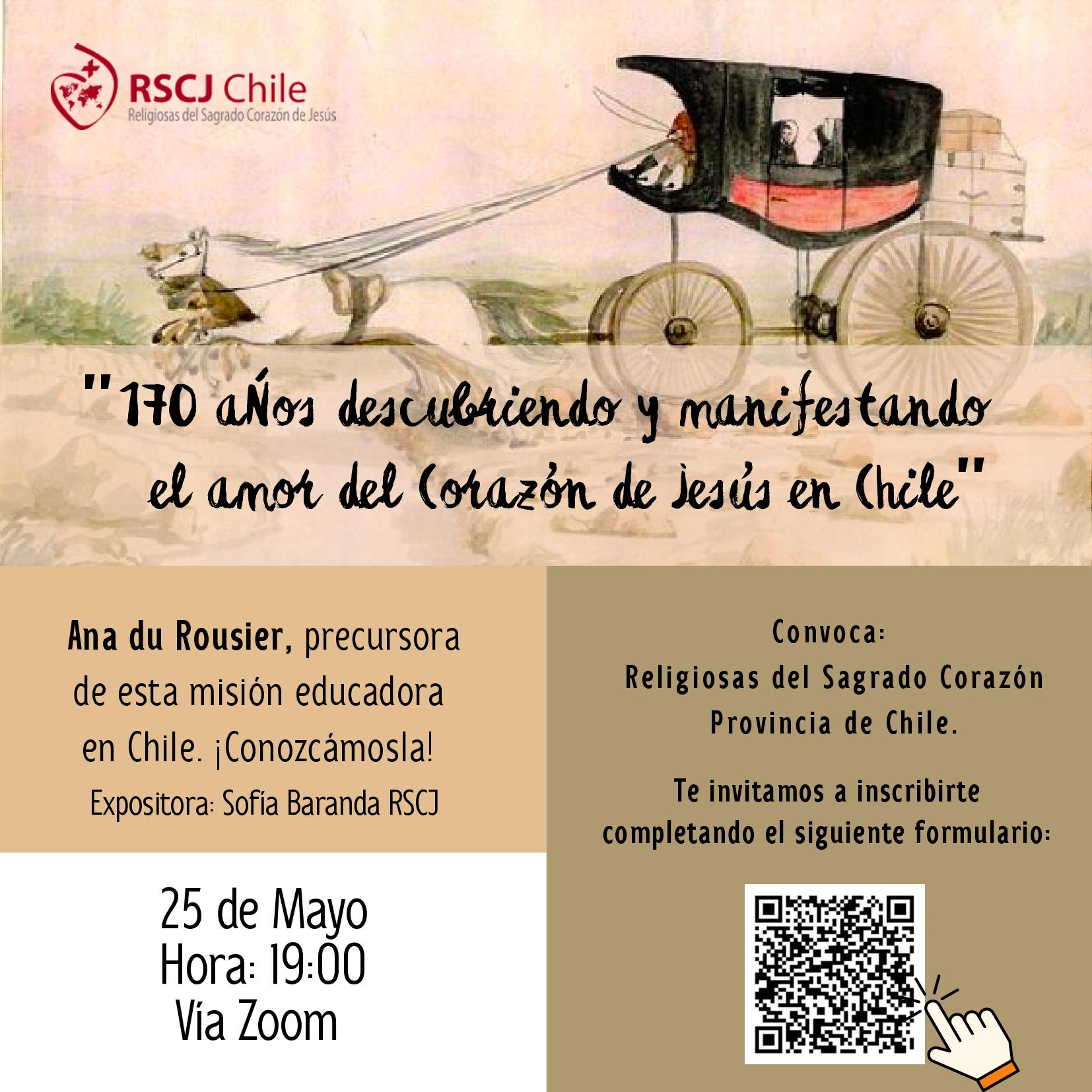Last year we, the Religious of the Sacred Heart of Jesus, celebrated 160 years of RSCJ presence in Chile — an event that invited us to look back from the vantage point of today at what confirms and renews our evangelizing and educative vocation. We also recognized that this is a special moment for us to share the richness and strength of the legacy of the founding RSCJ who came to our country from France in 1853.
Three consecrated women: Ana du Rousier, Antonietta Pissorno, and Mary MacNally, were the first RSCJ sent by Saint Madeleine Sophie Barat, the foundress and superior general of the Society of the Sacred Heart in response to the invitation of Archbishop of Santiago, Rafael Valentin Valdivieso in 1851 for RSCJ to come and educate the young people of our country. The arrival of these religious in Santiago on the 14th September 1853 opened up a broad educative pathway for Chilean women, as well as a fruitful mission in the church in terms of evangelization and formation of the laity.
Ana du Rousier and her contribution to the education of women in Chile
The education of women in 19th century Chile acquired great relevance for the Church and for civil society, as it had done in France after the Revolution. There was heightened recognition of women as educative agents in the family, especially in the handing down of Gospel values.
On February 2, 1854, at the request of then president Manuel Montt, the first College of Education for women was established by the Religious of the Sacred Heart. Its purpose was to form teachers who would be entrusted with the education of girls in state schools.
Running both the boarding school and the free school of the Sacred Heart, together with the first Escuela Normal de Preceptoras in Chile, was a great challenge for Ana du Roussier and her two companions. These three religious did all this along with learning Spanish, getting to know the Chilean culture, and adapting their educative philosophy to the needs of the country. They set up their own conditions: their programme and methods not only implied the handing on of knowledge according the plan of studies, but also the regimentation of discipline, the times of study and rest, punctuality and personal hygiene, the custom of manual work and prayer ….in short, a whole style of education that was then unknown to Chilean girls. The quality of the education they imparted was the fruit of more than 30 years experience in the practice of teaching in France, Italy, and the United States.
For Ana du Rousier, Antonietta Pissorno and Mary MacNally, the Escuela Normal de Preceptoras, first in Santiago and then the one asked of them by the government in Chillán, led them from the precariousness of their beginnings to close connections with state authorities and engagement in topics that were contingent on secularization. Throughout the 30 years that the Religious of the Sacred Heart were in charge of the formation of the first teachers of our country, more than 500 school teachers from different parts of Chile passed through their hands. These teachers later lived and continued the mission in remote places.
And what are we Religious of the Sacred Heart engaged in today?
When Ana du Rousier died on January 28, 1880, after 30 years of intense work, long and costly journeys, meetings with agreements and others with disagreements with different governments, immense endeavors to found, build, implement and refine the schools, she left behind free schools, private schools, and teacher training institutions in Santiago, Talca, Concepcion, Chillán, Valparaiso, Lima and Buenos Aires.
These women — educators, pastoral leaders, doctors, founders and missionaries — left a legacy that continues to be alive, dynamic, and fruitful. To this day, this legacy opens for us new fields of mission in our church, as we journey in history and within the political, cultural and social context of Chile. In faithful response to the invitation posed by the 2nd Vatican Council to Religious Life to return to its sources, we the Religious of the Sacred Heart, opened ourselves to the rich amplitude of the educative mission that goes beyond the schools. The formation of women, young people, children and men, of communities, organisations, and families, is lived in each transformative encounter with the other, with their cultures and their dreams. Religious emerged from the cloister in order to live amongst the poor. With the same daring and passion for education and for the proclamation of the loving, healing and reconciling Open Heart of Jesus, religious life becomes light of the Gospel.
We continue crossing frontiers, looking for remote places where we can educate, make life more dignified, console with the loving presence of Jesus, empower women, co-create with children and young people, build communities of hope, and work for a more fraternal life. We desire to do this by learning from one another, participating in the efforts of others, searching for spaces in organisations, communities, neighbourhoods, parishes, institutions and schools, the Church and civil society where small transformations are possible..
We are confident that education is a means of renewing society, because it touches the heart of the person — discerned and planned action finds its way into history, and is modified and recreated in dialogue with the challenges posed by our present-day world.
Today, the educative heritage of Saint Madeleine Sophie, sown in our country with audacity and courage by Ana du Rousier, Antonietta Pissorno and Mary MacNally, in so many women of yesteryears and in the youth of today, continues to be an encouragement and a response to the multitude of questions we ask ourselves about education in Chile. Whichever path, model, or project we choose to undertake to allow our children and young people to become fully developed, socially responsible, and able to lead meaningful and fruitful lives cannot be done without this desire and commitment:
Section |Formal Education|Living Our Mission
Province |Chile
Tags |Ana du Rousier
